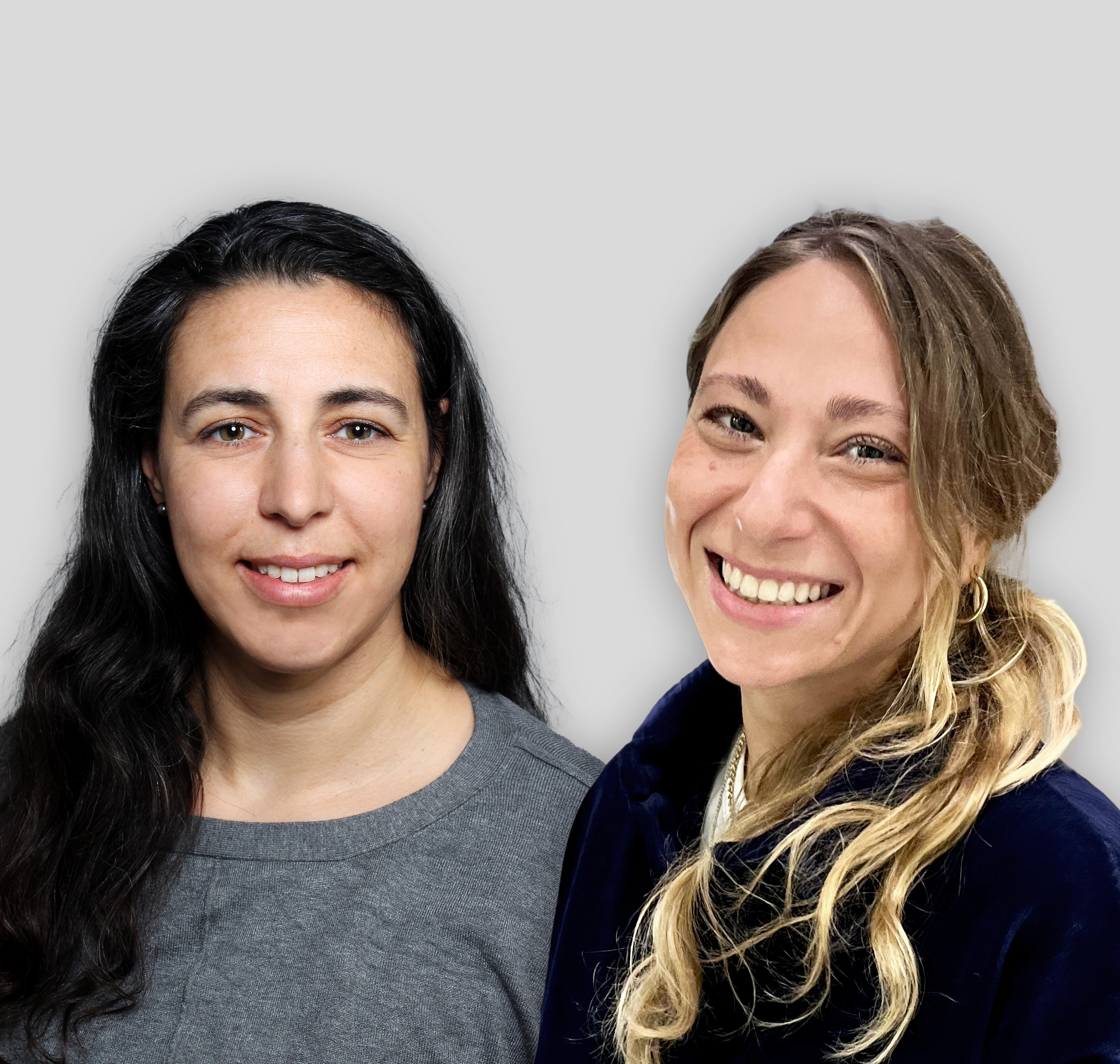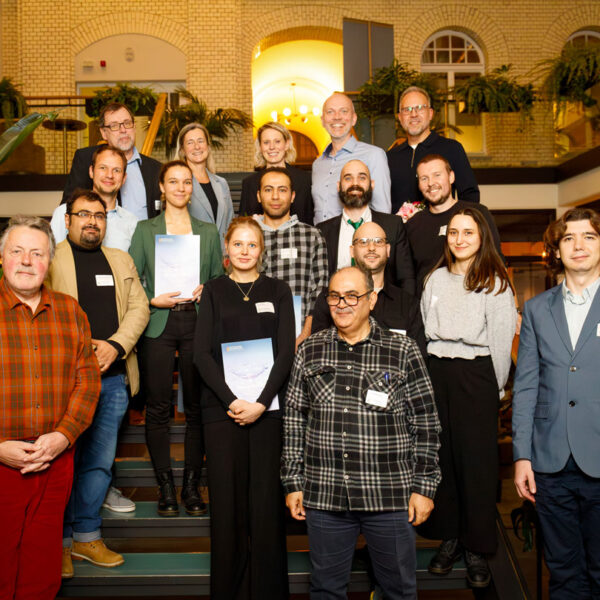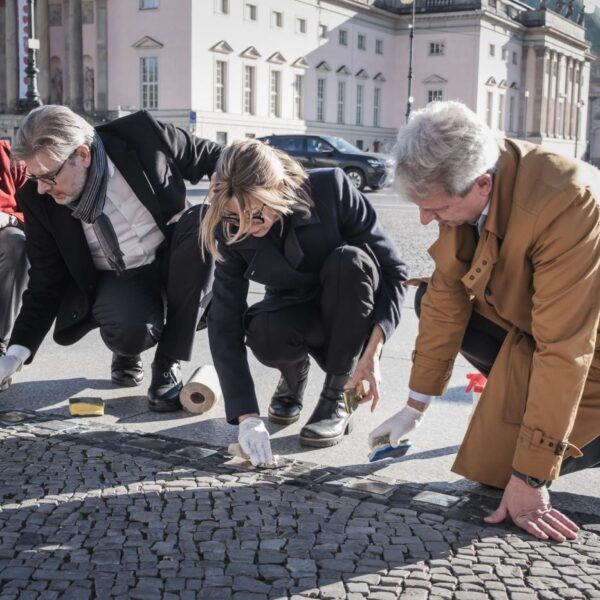
The Female Founders Day is approaching again. On October 12, 2023, the startup service of Humboldt University in Berlin, in collaboration with Science & Startups, will host this special event for the third time. The event aims to strengthen the topic of female entrepreneurship at the political, university, and societal levels.
The event will provide founders and aspiring entrepreneurs with a platform for exchange, networking, and empowerment. Participants can look forward to inspiring keynotes, safe spaces on various topics, and informative workshops. Additionally, future female founders will have the opportunity to present their startup ideas on an open pitch stage, allowing them to practice presenting in front of potential partners and investors. Participants can also look forward to an engaging panel discussion featuring personalities from politics, business, and academia.
This year’s motto is “visibility”
With this event, we aim to inspire and encourage women to start their own businesses, as female entrepreneurship still remains rare: the startup rate for women is only 17.7%, nowhere near that of men. To change this, the university’s stated goal is to make female founders and their companies more visible. That’s why this year’s theme is “Visibility.”
Aspiring female entrepreneurs need role models to take the step into entrepreneurship. Two such role models are Elena Margulis and Nijuscha Gruhn, who have been supported in their company foundations by the startup service of Humboldt University and who we had the opportunity to ask some questions.
Elena has been active in the digital startup scene for over 10 years and has co-founded three companies. After studying in Vienna, London, and Copenhagen, Elena was drawn to the Berlin startup scene, where she quickly took on management responsibilities. After brief stints in the corporate and consulting worlds, Elena founded her first company at the age of 29. She works as a mentor within the Humboldt Innovation Mentoring Program and is a strong advocate for more women in the entrepreneurial world.
Nijuscha is a Berliner who studied engineering and biotechnology in her hometown and earned a PhD in molecular biology. After some time in employment, she realized something was missing and continued the development of her startup DermaDigital UG. However, this time she changed her perspective and decided to participate in the startup life as a business angel. Nijuscha is also an ambassador for Health Tech at the Humboldt Founders Club, the business network for founders from the Humboldt University environment.
What is the role of a business angel?
Nijuscha: I believe the role of a business angel is to help. For me, it means supporting founders during this hectic phase, reassuring them that others have succeeded before them and that they will too. Additionally, I help them with various issues and encourage them to build a good network so they always have someone to ask and trust.
I find it courageous that you are engaged as a business angel as a woman, even though such events often have many men and few women present.
Nijuscha: Yes, it’s not always my comfort zone, but that doesn’t stop me from acting as I see fit. I don’t attend every networking event because I don’t always feel comfortable or think I need to wait to see what’s happening in the startup scene and economy. I prefer to move forward patiently and strategically rather than investing a lot of money in countless tickets. But I believe that female founders deserve support, which is why I am a business angel. I have always been supported when I had questions, so this is my way of giving back.
„(…) I believe that female founders deserve support, which is why I am business angel.“
What important tip or advice would you like to give to other female founders?
Elena: Put perfectionism aside. There will never be a moment when everything is perfect, and no one needs perfect. Learn to make decisions quickly and not dwell on them. We need to set aside the high standards we usually have for ourselves because otherwise, we won’t have the capacity to focus on the essentials. Another important thing I would advise female founders is to build a company that is much more than just a good product. Always keep an eye on your finances, thoroughly understand your brand, and don’t neglect hiring – bring in good people and don’t compromise here!
„The time for pondering is over, the time for action begins.“
Nijuscha: My tip is: just do it. I’m a list person, and if a task seems too big, I create a list of small steps and then get started. That’s the key to moving forward. The time for pondering is over, the time for action begins. There’s a planning phase and an execution phase, and if you clearly separate the roles of planner and executor, you are more productive.
What do you see as the biggest hurdle or challenge when founding as a FLINTA person? And how did you manage to overcome this challenge?
Elena: The startup world is still a man’s world. Most founders and investors are male. So, it’s not surprising that we still bend over backwards—albeit unconsciously—to fit into this world. We think we need to be louder, tougher, less emotional. That takes a toll on the psyche.
And founding a company is already tough enough, so we need all the energy to focus on it. I firmly believe that women lead and found companies differently. But if the ideal remains quick “scaling up”: lots of employees and lots of venture capital money, then it will be much harder for different approaches to prove themselves in the market. I also underestimated the importance of networking. What I observe is that it’s often more difficult for women to build a network and then use it. I see many “boys’ clubs” that were formed during university or early career stages, and they take every opportunity to help each other climb the career ladder.
„I see many “boys’ clubs” that were formed during university or early career stages, and they take every opportunity to help each other climb the career ladder.“
Nijuscha: I don’t think I’ve overcome the biggest hurdle. What I did was consciously seek out a partner who I knew would be well-received in the male-dominated business world. That worked, but the downside was that I held back parts of myself. I didn’t finish my thoughts, and that was deliberate because I thought it would work better if I adapted. But I’ve realized it’s not my game.
Why do you want to be role models as founders?
Elena: What I can actively contribute to being a role model is sharing my personal experiences and offering support to those who could benefit from it. I try to do this in both my private and professional life. And if I can alleviate a little fear and give some courage, then it’s an amazing feeling.
Is there anything you would have done differently in retrospect?
Elena: I should have listened to my intuition more often. Your intuition tells you more than you think. I tend to be very analytical, overthink things, and compare myself to others. Trusting and believing in yourself can work wonders. And experience has shown that the little moment when you actually feel that it’s not a good decision but do it anyway, especially in interpersonal matters like hiring, finding investors, or co-founders, is usually right in the end. Also, sometimes a bit more patience and perseverance wouldn’t have hurt: it’s important to give things time.
„Trusting and believing in yourself can work wonders.“
Nijuscha: Hmm, oh yes, I think I would have paid more attention to the statutes of our company’s agreement. In fact, we chose a very linear form where no exits of co-founders were considered. Agree on what to do in worst-case scenarios while you still get along well.
What do you wish from politics regarding the issue of female founders?
Elena: I wish the profession of “entrepreneur” was introduced to children already in school. This needs to be pointed out early on so that it changes the awareness of children and thereby society. Especially for children who don’t come from entrepreneurial families or have a migration background, these opportunities need to be placed early. I wish for much more support from politics here. Also, starting a business shouldn’t be so hard, especially financially. More synergies between the private sector and politics need to be created. How great would it be if employers promoted and subsidized the entrepreneurial spirit? And very importantly, Germany needs to develop a failure-positive culture.
„(…) Germany needs to develop a failure-positive culture.“
If you had a magic stick, what would you wish for regarding gender equality between men and women?
Nijuscha: Well, that can be anything. I think I wouldn’t just want to make all successful people in business women, because that alone wouldn’t change much. There are both men and women who lead in different ways, either competitively or cooperatively. So far, the competitive leaders dominate the business world, regardless of gender. But I wish that the cooperative approach, which is increasingly being adopted in management, is also promoted in the startup scene. If I could use magic, I would make those who lead competitively also adopt cooperative approaches, as these often yield better results.
„(…) i wish that the cooperative approach, which is increasingly being adopted in management, is also promoted in the startup scene.“
How can the state better support female founders/women in the workforce to move closer to equality in this area?
Elena: The state can do a lot: make it easier to return to work after parental leave, ensure equal rights to parental leave for everyone, increase the number of women in politics, pursue feminist policies… and so much more.
Nijuscha: I don’t think there’s just one thing that needs to be done. The challenges are very different, having a flexible budget for female founders would be great. It could be used as needed, like for paying a babysitter, giving a few more minutes for work. For example, I spent extra money to influence the team’s mood by bringing food, which I could have also paid from such a pot. Unfortunately, it’s difficult to change the minds of established decision-makers (like partner companies), so it’s more effort for women.
Elena and Nijuscha, thank you for your answers!










